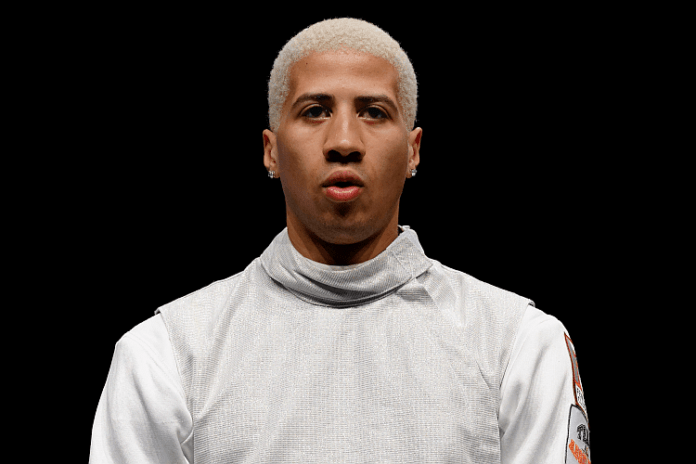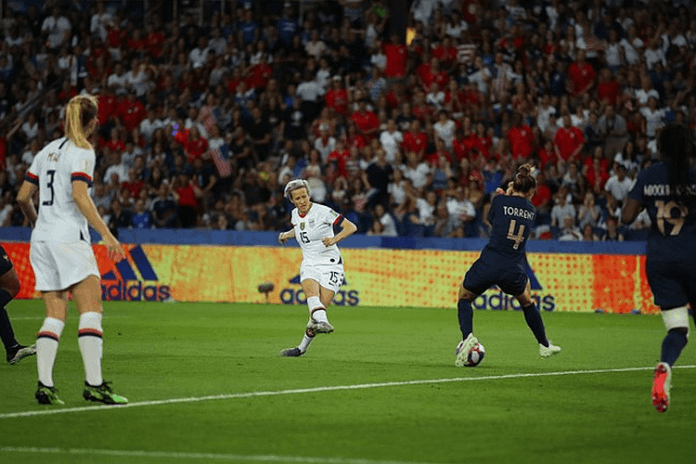Fans of the Star Trek storyline know the reference immediately: the Starfleet Academy exercise in which the freighter Kobayashi Maru is marooned in the Klingon Neutral Zone and the cadets have to decide whether to rescue the ship and crew – and be destroyed by the Klingons – or leave the ship to its fate, likely its destruction and the death of its crew.
The “no-win” scenario was only defeated by one cadet: the future captain of the Enterprise, James T. Kirk. After “failing” the test twice, cadet Kirk reprogrammed the simulator so that the freighter could be saved.
Cheating? According to the movie, Star Trek II: The Wrath of Khan (1982), Kirk was commended for original thinking.
Fast forward to 2019 and the same could be said for International Olympic Committee President Thomas Bach (GER). In the face of “insurmountable problems,” he has – in effect – re-programmed the Olympic Movement.
Back on 30 April, a story in the English-language Rio Times was headlined “After Rio 2016, are the Summer Olympics doomed?” and noted that “Potential host cities, or their taxpayers, have determined that the increasingly exorbitant Olympic price-tag is simply not a good investment. The costs – social, economic and political – almost always outweigh the benefits.”
The Rio experience, a product of the bid process under Bach’s predecessor, Jacques Rogge (BEL), was difficult and continued to be a problem, with the head of the organizing committee on trial for corruption and massive legacy issues with multiple venues.
Bach saw this and began changing the paradigm almost immediately upon taking office. Many of the results are in, and after five years, the situation looks a lot different:
● Financial ruin for the organizing committee and the local/regional/national governments guaranteeing the Games? The IOC is now promising – in writing – cash and in-kind support of at least $1.8 billion to organizing committees for the summer Games, and heavy oversight to pressure organizing committees to keep costs down.
● The risk of financial disaster for local governments who have guaranteed the cost of the Games? The IOC has narrowed its requirements, no longer an iron-clad promise to pay all costs, but those in specific areas, tailored to the nature of the Games as projected to be organized.
● The strong preference of the IOC and the International Federations for new construction for Olympic venues? Gone: the IOC now insists on existing facilities and if none exist, temporary sites … unless a facility is already planned to be built.
● The need for a single city to be the host of the Games? Eliminated: the Olympic Charter was changed to allow a Games host to be a city, a region or even multiple countries if it makes sense.
● Exorbitant costs for bidding for the Games? The IOC trimmed the costs of bidding significantly, providing expertise that reduced the cost of consultants to help bidding cities and narrowing the contact possibilities so that the cost of staff and travel to faraway locations was reduced to a fraction of the prior amount.
● An expensive and anxiety-filled race to the finish of the bid process, with one or more cities walking away with nothing? The newest reforms to the bidding process create an open dialogue with commissions of IOC members that can result – and likely will – in the confirmation of a single bid presented to the IOC membership. Instead of ballots, a show of hands may be all that is needed to elect as host city, as was done for Paris for 2024 and Los Angeles for 2028.
● Continuing rejection of the Games by voters via referenda? Those will continue, but the IOC off-loaded this responsibility to any city/region/country that wants to host a Games, suggesting that any necessary voting on whether to bid should be done before the IOC’s new commissions certify a bid is worthy of actual consideration. Now, the impact of a loss in a public vote on whether to bid is only local and kills off a bid which is not yet “real” in the IOC’s terms.
● No viable host for the Games when the time for selection comes? There is no time for selection now. For decades, it was six years before the Games, then moved – in 1981 – to seven years out to allow for construction. Now, the new rules allow the IOC to select a host whenever it wants, with predictions from senior IOC members that the 2030 Winter Games could be chosen in 2021 and even a 2032 Olympic Games as early as next year!
● What about the old-boy networks and bad governance beyond the IOC, especially in the International Federations? The IOC threatened wrestling and weightlifting with bans from the Games, and both federations changed. The IOC did the same with boxing’s AIBA, and when not satisfied with its reforms, removed it from governance of the Olympic boxing tournament for 2020. As a result, the AIBA may fold, or be completely overhauled.
And Bach went further. Thanks to a German cartel-court decision that called out the IOC’s restrictions on athlete communications during the Games period as over-broad, a change was suddenly approved earlier this week that opened the door to much more liberty for athletes supported by commercial interests not affiliated with the organizing committee, the IOC or the local National Olympic Committees.
The long-in-force rule – the infamous By-law 3 to Rule 40 of the Olympic Charter – read: “Except as permitted by the IOC Executive Board, no competitor, team official or other term personnel who participate in the Olympic Games may allow his person, name, picture or sports performances to be used for advertising purposes during the Olympic Games.”
The new text says “Competitors, team officials and other team personnel who participate in the Olympic Games may allow their person, name, picture or sports performances to be used for advertising purposes during the Olympic Games in accordance with the principles determined by the IOC Executive Board.”
Those guidelines are yet to be issued, so the issue is still to be detailed, but this is a sea-change for the IOC, but hands the ball principally to the National Olympic Committees to determine what is allowed. Said Bach in a statement, “The amendments of the Olympic Charter made today show a clear demonstration of the new approach of the IOC, which is based on openness and flexibility, without infringing the existing agreements. We want to look at this in a positive way and we want to be as liberal as possible without affecting the sponsorships contracts of the NOCs. We are protecting them and that’s why we don’t have a one size fits all solution. I don’t think such a solution exists.”
The IOC elected 10 new members this week; nine of which are from outside Europe and four of which were women. The days of the all-white, mostly-European IOC are ending.
Critics of the IOC don’t want to hear about this, but Bach is creating a new IOC for the 21st Century, re-programming what had been described as an unchanging and unchangeable organization wedded to the past.
Bach saw the need to change in order for the IOC to survive, in effect, for the sustainability of the organization and the Olympic Games. There are problems ahead, but the new thinking is already spreading to the sponsorship realm, where Coca-Cola teamed with the Mengniu Chinese dairy – in the first-ever multi-firm agreement – to reserve the beverages category from 2021-2032. Don’t think both companies weren’t well aware of the new environment in which they would be working … and have embraced it.
In the Star Trek world, Jim Kirk went on to a legendary career after finding a way to change the outcome of the Kobayashi Maru test. Bach’s renovation efforts in the Olympic Movement are helping to ensure the future of that franchise as well.
Rich Perelman
Editor























